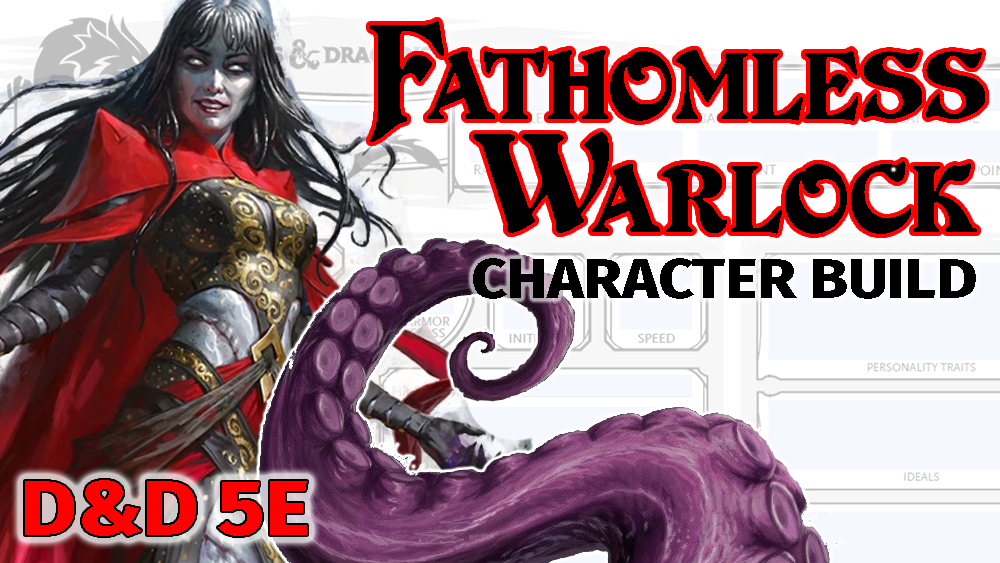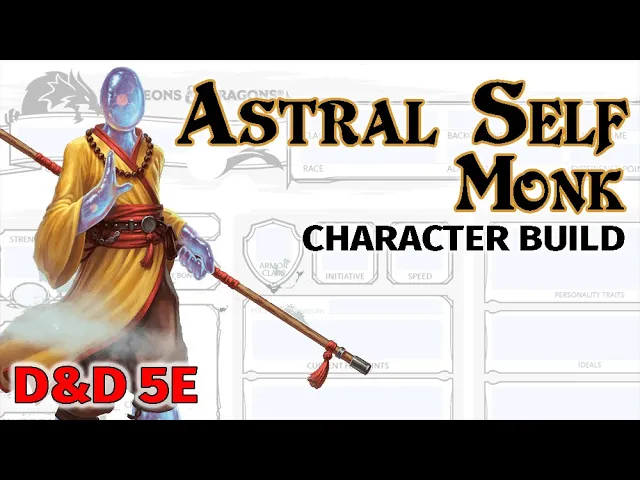Are you going to be a player in an upcoming Dungeons & Dragons™ murder mystery game? Does your Dungeon Master plan on running one or more of the adventures from Candlekeep Mysteries? Well then, let’s get you squared away with the optimal character builds that will make you an efficient crime solver. Here are the top 5 subclasses that would make a great detective in a Candlekeep Mysteries or other mystery style D&D game.
In today’s article and video I will give you my thoughts on the D&D 5e Character subclasses that make the best detectives in a mystery game. Be sure to share this article with your friends so that each of you can pick a different selection from this list and dominate as the super-super-sleuths of your next mystery campaign. Let’s get started!
With my top 5 list I really zeroed in on characters that provide a lot of value with one of three different investigator-like skills.
- Investigative Gumshoes: Characters that have an eye for detail and have extraordinary abilities in Perception and Investigation. This would also include characters that can utilize tools to determine the chemical makeup of a strange alchemical substance or decipher forged documents.
- Intuitive Detectives: Charismatic character subclasses that will be useful when it is time to interrogate a suspect or question a witness with Persuasion, Intimidation and Insight.
- Shady Snoopers: Character builds that specialize in dexterous abilities such as Stealth and Slight of Hand to enter the gray area and find ways to sneak around and perhaps find clues in a few questionable ways.
Let’s dive in and take a look at the Top 5 Detective Character Builds D&D 5E
#5 – Circle of Stars Druid
The prime detective, this super-sleuth gets its powers from it’s Starry Form and specializes in high Investigation and Perception die rolls that will rarely miss.
The Star Map
2nd-level Circle of the Stars featureYou’ve created a star chart as part of your heavenly studies. It is a Tiny object and can serve as a spellcasting focus for your druid spells. You determine its form by rolling on the Star Map table or by choosing one.
While holding this map, you have these benefits:
You know the guidance cantrip.Guidance is absolutely amazing with the surplus of skill checks that will be required for Investigators!
Starry Form
2nd-level Circle of the Stars featureAs a bonus action, you can expend a use of your Wild Shape feature to take on a starry form, rather than transforming into a beast.
While in your starry form, you retain your game statistics, but your body becomes luminous; your joints glimmer like stars, and glowing lines connect them as on a star chart. This form sheds bright light in a 10-foot radius and dim light for an additional 10 feet. The form lasts for 10 minutes. It ends early if you dismiss it (no action required), are incapacitated, die, or use this feature again.
Dragon. A constellation of a wise dragon appears on you. When you make an Intelligence or a Wisdom check or a Constitution saving throw to maintain concentration on a spell, you can treat a roll of 9 or lower on the d20 as a 10.
Top 5 Character Builds for Mysteries – Best Subclasses for Candlekeep Mysteries
#4 – Armoror Artificer
The Armoror Artificer will show their value in an investigation through the use of tools and magic items. They’ll be looking for secret doors or magic and create several contraptions and gadgets to help with the case at hand.
Artificer Abilities for Mysteries include:
Magical Tinkering
At 1st level, you learn how to invest a spark of magic into mundane objects. To use this ability, you must have thieves’ tools or artisan’s tools in hand. You then touch a Tiny nonmagical object as an action and give it one of the following magical properties of your choice:- The object sheds bright light in a 5-foot radius and dim light for an additional 5 feet.
- Whenever tapped by a creature, the object emits a recorded message that can be heard up to 10 feet away. You utter the message when you bestow this property on the object, and the recording can be no more than 6 seconds long.
- The object continuously emits your choice of an odor or a nonverbal sound (wind, waves, chirping, or the like). The chosen phenomenon is perceivable up to 10 feet away.
- A static visual effect appears on one of the object’s surfaces. This effect can be a picture, up to 25 words of text, lines and shapes, or a mixture of these elements, as you like.
These abilities with your Magical Tinkering allow you to leave secret messages or cause a distraction.
Infuse Item
At 2nd level, you gain the ability to imbue mundane items with certain magical infusions. The magic items you create with this feature are effectively prototypes of permanent items.Infuse items to replicate items such as Wand of magic detection, Wand of secrets, Gloves of Thievery and Sending Stones.
Tools: Artificers start with Thieves’ tools, tinker’s tools, one type of artisan’s tools of your choice. Plus, you obtain another tool at 3rd level. I recommend trying to obtain Cartographer’s Tools, Alchemist Supplies, and Calligrapher’s Tools. At level 6, you gain Expertise in two tools of your choice.
Flash of Genius
Starting at 7th level, you gain the ability to come up with solutions under pressure. When you or another creature you can see within 30 feet of you makes an ability check or a saving throw, you can use your reaction to add your Intelligence modifier to the roll.You can use this feature a number of times equal to your Intelligence modifier (minimum of once). You regain all expended uses when you finish a long rest.
If your intelligence is a 20, you get to add a +5 to important skill checks while in your mystery game!
#3 – Knowledge Cleric
Clerics can select the cantrip Guidance, which is arguably one of the best cantrips in the game. Giving an additional 1d4 to any skill check should help the Cleric and their allies find the clues or information they need.
The following abilities are absolute gold in a murder mystery or investigation type of a game!
Blessings of Knowledge
At 1st level, you learn two languages of your choice. You also become proficient in your choice of two of the following skills: Arcana, History, Nature, or Religion.Your proficiency bonus is doubled for any ability check you make that uses either of those skills.
Channel Divinity: Knowledge of the Ages
Starting at 2nd level, you can use your Channel Divinity to tap into a divine well of knowledge. As an action, you choose one skill or tool. For 10 minutes, you have proficiency with the chosen skill or tool.Channel Divinity: Read Thoughts
At 6th level, you can use your Channel Divinity to read a creature’s thoughts. You can then use your access to the creature’s mind to command it.As an action, choose one creature that you can see within 60 feet of you. That creature must make a Wisdom saving throw. If the creature succeeds on the saving throw, you can’t use this feature on it again until you finish a long rest.
If the creature fails its save, you can read its surface thoughts (those foremost in its mind, reflecting its current emotions and what it is actively thinking about) when it is within 60 feet of you. This effect lasts for 1 minute.
During that time, you can use your action to end this effect and cast the suggestion spell on the creature without expending a spell slot. The target automatically fails its saving throw against the spell.
#2 – Inquisitive Rogue
As a class, Rogues are the prime pick for becoming a detective or investigator. They receive six skills at first level and can double their proficiency bonus in two of them with their Expertise ability.
At higher levels, the Rogue is a master of skills with: Reliable Talent
By 11th level, you have refined your chosen skills until they approach perfection. Whenever you make an ability check that lets you add your proficiency bonus, you can treat a d20 roll of 9 or lower as a 10.Now, let’s add-in the Inquisitive Rogue’s abilities for an all-around fantastic Sherlock Holmes build:
Ear for Deceit
When you choose this archetype at 3rd level, you develop a talent for picking out lies. Whenever you make a Wisdom (Insight) check to determine whether a creature is lying, treat a roll of 7 or lower on the d20 as an 8.Eye for Detail
Starting at 3rd level, you can use a bonus action to make a Wisdom (Perception) check to spot a hidden creature or object or to make an Intelligence (Investigation) check to uncover or decipher clues.Steady Eye
Starting at 9th level, you have advantage on any Wisdom (Perception) or Intelligence (Investigation) check if you move no more than half your speed on the same turn.
#1 – College of Eloquence Bard
The face of the party, the College of Eloquence Bard will be the one who should do all of the talking. They will be able to manipulate the minds of witnesses, suspects and gatekeepers with their charismatic abilities.
As a base class, the Bard has the most to offer a team of mystery detectives. They can have up to five skills of their choosing at first level. Gain half of their proficiency bonus on skills they are not proficient in at 2nd level (Jack of All Trades) and then hone-in on two important skills much like the Rogue, with Expertise at 3rd level.
Let’s also sprinkle in the delicousness that is Bardic Inspiration allowing them to give a 1d6 to their allies when they try to use their super-effective crime fighting mystery skills.
Of course this we are just getting started. We can choose College of Eloquence and now we have a whole smorgasbord of abilities that will pry the information out of anyone that dares engage in conversation.
Silver Tongue
3rd-level College of Eloquence featureYou are a master at saying the right thing at the right time. When you make a Charisma (Persuasion) or Charisma (Deception) check, you can treat a d20 roll of 9 or lower as a 10.
Unsettling Words
3rd-level College of Eloquence featureYou can spin words laced with magic that unsettle a creature and cause it to doubt itself. As a bonus action, you can expend one use of your Bardic Inspiration and choose one creature you can see within 60 feet of you. Roll the Bardic Inspiration die. The creature must subtract the number rolled from the next saving throw it makes before the start of your next turn.
Unfailing Inspiration
6th-level College of Eloquence featureYour inspiring words are so persuasive that others feel driven to succeed. When a creature adds one of your Bardic Inspiration dice to its ability check, attack roll, or saving throw and the roll fails, the creature can keep the Bardic Inspiration die.
Universal Speech
6th-level College of Eloquence featureYou have gained the ability to make your speech intelligible to any creature. As an action, choose one or more creatures within 60 feet of you, up to a number equal to your Charisma modifier (minimum of one creature). The chosen creatures can magically understand you, regardless of the language you speak, for 1 hour.
Once you use this feature, you can’t use it again until you finish a long rest, unless you expend a spell slot to use it again.
Who Will You Play?
So those are my picks for the top 5 subclasses that lend themselves well to be in a D&D murder mystery or Candlekeep Mysteries game. Do you agree with my list? What character will you play in a D&D Mystery Game? Be sure to check out the video for more information and let me know what subclass or character do you think makes the best Detective for a D&D 5E Mystery game?
Also, if you are a DM that needs puzzles for D&D or Pathfinder be sure to pick up Wally DM’s Journal of Puzzle Encounters with pricing as low as $4.99 for the PDF and $17.99 for a printed book!
And of course, get your mystery adventure started today by picking up Candlekeep Mysteries. Candlekeep Mysteries is a collection of seventeen short, stand-alone adventures designed for characters of levels 1-16. These adventures can be run as one-shot games, plugged into an existing Forgotten Realms campaign, or easily adapted for other campaign settings.
Which Candlekeep Mysteries adventures are the best? Well, I will leave that to my friends over on FlutesLoot.com in their article: The Top 17 Candlekeep Mysteries Adventures Ranked!
On to the Next!
—wallyd



